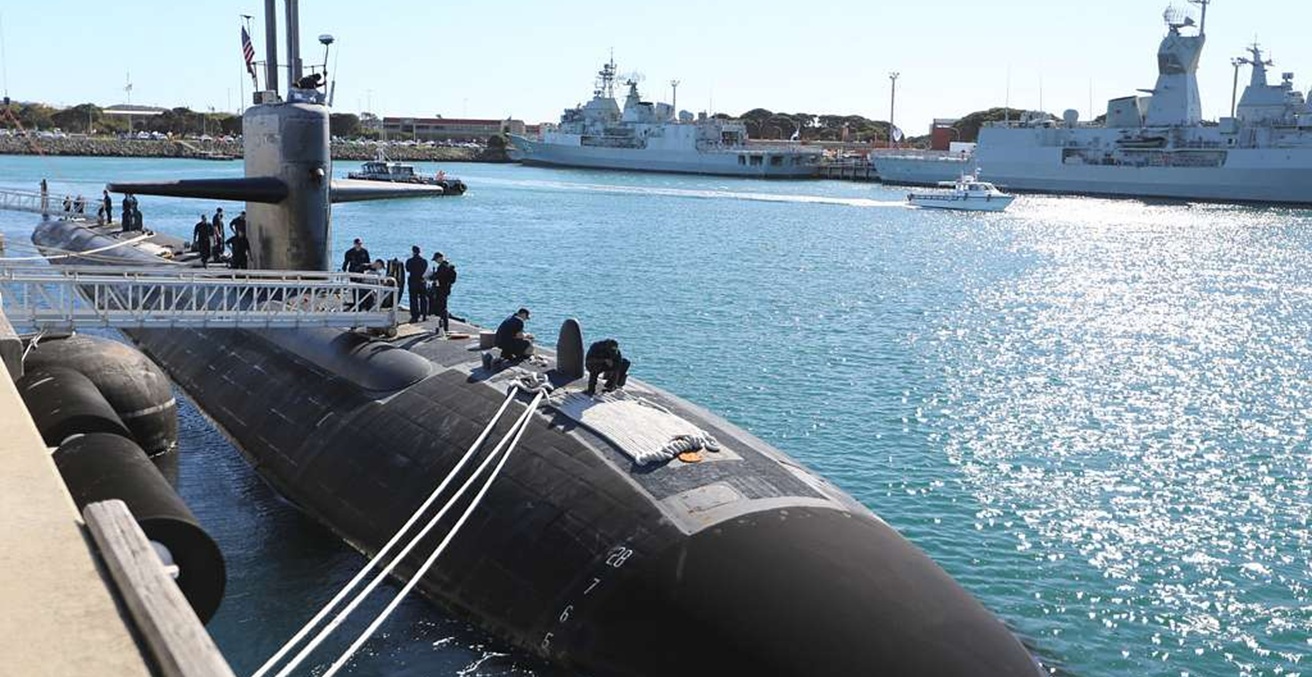Australia’s decision to terminate a A$90 billion defence contract with France to forge a new defence alliance with the US and UK was a shock for Europe. Ironically, the announcement came just hours before the EU debuted its Indo-Pacific Strategy.
Only weeks before being “stabbed in the back,” Australia reassured the French of the “importance of the future submarine program” at the high-level 2+2 bilateral meeting of defence and foreign ministers. However, Australian politicians claim that France should not be surprised about the termination of the contract, given major concerns about delays, cost, and suitability of the program for Australia’s national interests. The crisis might have been compounded by a clash between the Australian low-context culture prioritising strict interpretation of contractual obligations over long-term trust, the latter being more prominent for the French high-context culture. Nevertheless, shouldn’t diplomacy serve to avoid such clashes?
French resentment cannot merely be explained by the loss of a significant economic deal, although defence exports stand at the core of the French economy. In symbolic terms, France is becoming the de facto leader of the EU in light of German Chancellor Angela Merkel’s departure. Moreover, France is taking over the rotating presidency of the Council of the EU in the first half of 2022. The termination of the contract can thus be seen as a kick at the heart of Europe. Its severity is demonstrated by the Quai d’Orsay’s decision to recall French ambassadors in Washington and Canberra, an unprecedented move in the diplomatic relations between these traditional allies.
The direct impact of the broken deal with France might well serve Australian national interests. For Australia, AUKUS secures stealthy nuclear-propelled submarines and access to US technology. A similar partnership has been achieved only with the UK, more than 60 years ago. Hefty compensation of €250 million to French company Naval Group for terminating the contract demonstrates the significance of the AUKUS arrangement for Australia.
However, the indirect repercussions of the broken deal with France cannot be underestimated. The split is creating sub-blocks of Western allies, which might significantly weaken their stance against a rising China. The crucial EU-Australia trade negotiations have also been put in jeopardy, raising broader questions about the role of the EU in the Indo-Pacific region.
EU’s Indo-Pacific “strategic autonomy”
The EU Indo-Pacific strategy is an expression of the new geopolitical vision of the von der Leyen Commission. It forms part of a broader European political approach aimed at ensuring its strategic autonomy vis-à-vis the US in global affairs. While striving to play a greater role in the Indo-Pacific through more coherent internal policies, the EU envisages cooperation with like-minded partners, such as Australia and New Zealand. In sharp contrast, AUKUS excludes such cooperation.
The EU Indo-Pacific strategy underscores the economic interdependence of the EU and the region, spanning from Eastern Africa to the Marquises. In line with this, the EU has been pursuing a proactive regional trade policy through the conclusion of free trade agreements (FTAs) with a number of Asian States (Singapore, Vietnam, South Korea, Japan), negotiating an investment agreement with China, and developing a strategic partnership with ASEAN.
The EU’s strategy further emphasises the importance of the region for achieving global green transition as deforestation, depletion of fisheries, and greenhouse gas emissions continue to increase across the region. Further, the EU is concerned about intense competition in the region, which poses threats for its stability and is likely to have direct impact on EU interests through the disruption of supply chains and exhaustion of natural resources. What matters for the EU is keeping maritime routes open, given the importance of sea lines that link Europe with Asia.
With two million French nationals in the Indo-Pacific region, 7000 military personnel stationed in the area and on its aircraft carrier, and the sheer size of its Exclusive Economic Zone, it comes as no surprise that France’s role in the region and its own strategy is the core axis of the EU Strategy. France is also the only EU member state with territories in the Indo-Pacific.
In contrast, the new AUKUS alliance endorses Australia’s focus on imminent threats for its national security stemming from China, and US strategic competition with China. Both approaches thus prioritise power relations. Opposite to this, Europe’s interests in the region go beyond constraining China’s assertiveness and are to be achieved through international rules, which should serve to neutralise power relations. Accordingly, maritime routes and freedom of navigation should be secured in accordance with international law.
The EU and Australia: two diverging strategic visions?
The FTA between the EU and Australia is one of the cornerstones of EU engagement in the Indo-Pacific. The two sides have been negotiating a trade deal since mid-2018. Despite like-mindedness on core values such as democracy, human rights, and the rule of law, their visions of trade differ.
From an EU geopolitical perspective, international trade is embedded in a broader political vision revolving around sustainability and regulatory governance. In addition, the approach to climate change evolves around different conceptions about the role of trade. Australia has openly criticised the EU’s “heavy-handed” approach, in particular regarding the proposed Carbon Border Adjustment Mechanism, which is perceived as a tariff. In contrast, Australia favours a market-based approach focusing on “incentives” and technology exchange and promoting green partnerships with countries in the region such as Singapore.
While for Australia trade appears to be an end in itself, its separation of security and economic interests seems to be changing. Australia opposes China’s accession to the Comprehensive and Progressive Agreement for Trans-Pacific Partnership (CPTPP), although justifies its position by China’s non-compliance with its existing international trade obligations, exemplified in its trade war with Australia.
UK’s post-Brexit realignment
Finally, while France has underplayed the role of the UK in AUKUS, the UK’s approach to Indo-Pacific undoubtedly has a spill-over effect on EU security and trade interests. Post-Brexit, the UK is adamant in reviving its historical presence in the region. Its first FTA was quickly concluded with Japan following the UK’s departure from the EU.
In June, Australia and the UK achieved an agreement in principle on the FTA, which is to be finalised in October. This is to be the fastest agreement that Australia has ever concluded, as well as Australia’s most comprehensive trade deal after the Australia-New Zealand Closer Economic Relations Trade Agreement. The full liberalisation of trade in agricultural products and renouncement of climate change ambitions was the price that the UK was willing to pay for a more prominent voice in the region. In return, Australia will support the UK’s accession to the CPTPP. AUKUS demonstrates further strengthening of Australia-UK security relations.
Where to from here for the EU-Australia FTA?
The evolving saga is another test for European solidarity. During Brexit negotiations, member states remained united without hesitation. While EU institutions and 26 member states have shown support for France, their approach to dealing with consequences might be less consistent.
Although the trade deal between Australia and the EU could be seen as a separate issue with EU institutions in the lead, in reality France has a significant weight to complicate the negotiations through the Council. The offer on geographical indications announced by the Australian trade minister, albeit of sensitive nature in trade talks, will hardly be sufficient to regain the confidence of Europeans. It might be in the long-term interest of both sides to suspend the trade negotiations until the dust settles. Indeed, the EU has postponed – for the moment at least for a month – the 12th trade round scheduled for mid-October.
Regardless of the direct consequences of the broken deal between France and Australia, with AUKUS Australia is moving further away from Europe.
Dr Ivana Damjanovic is a Lecturer at the University of Canberra, and a Visiting Research Fellow at the ANU Centre for European Studies. She is a former diplomat.
Professor Nicolas de Sadeleer is a Professor of EU Law at the University St. Louis in Brussels.
This article is published under a Creative Commons License and may be republished with attribution.




